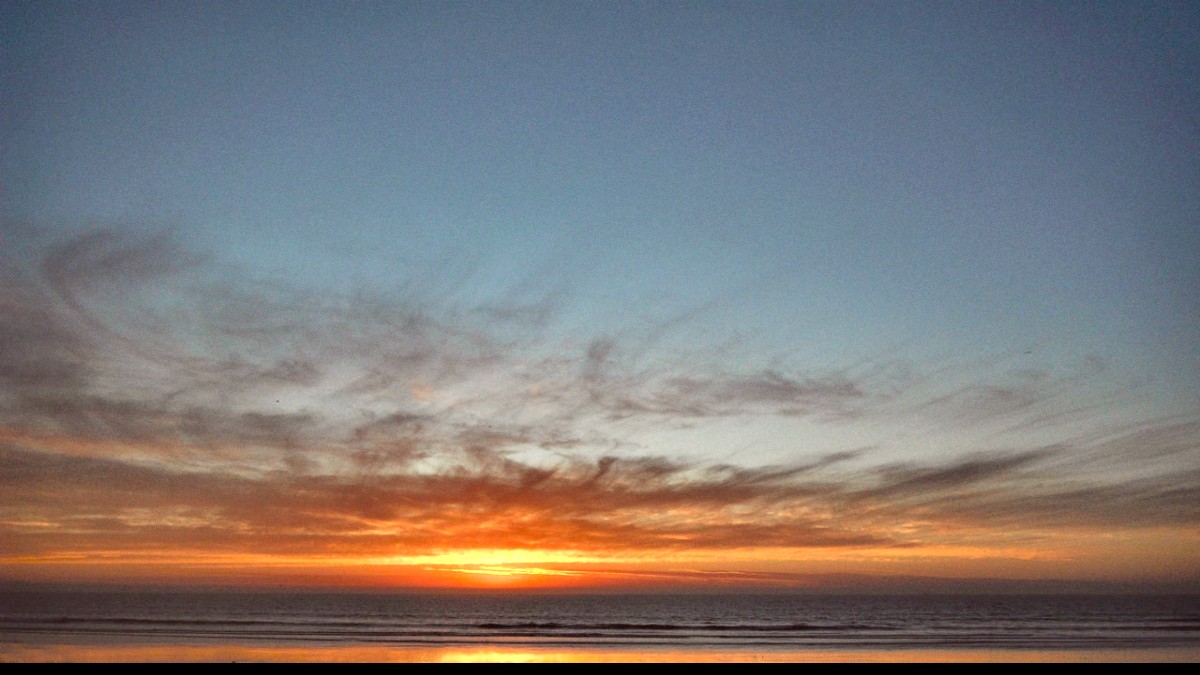
The Atlantic Coast, Morocco
Agadir experiences a subtropical desert climate, which typically brings mild winters and hot, dry summers. The coastal location means ocean breezes temper the heat compared to inland cities.
Temperature patterns vary. Winter (Dec-Feb) sees mild days (20-23°C) and cooler nights (8-11°C). Spring (Mar-May) warms up (24-28°C). Summer (Jun-Aug) brings hot, dry conditions (28-32°C), possibly exceeding 40°C during Chergui winds. Rainfall is minimal, mostly Nov-Mar. Humidity is generally moderate, feeling dry when desert winds are present.
High season (Oct-Apr) has pleasant temperatures for all activities but higher prices and more crowds. Shoulder season (May-Jun and Sep) still has excellent weather and fewer crowds, with slightly lower prices. Watch for "Chergui" hot desert winds.
Low season (Jul-Aug) is the warmest period with the lowest prices. International tourist numbers are lower, but domestic tourism rises. Coastal fog can linger longer in mornings during this time.
Peak demand for pleasant temperatures.
Sightseeing, golf, beach relaxation.
Higher prices, more crowds.
Transition period with good weather.
Beach activities, fewer crowds, better value.
Chergui winds, coastal fog possible.
Warmest period with lower rates.
Budget travel, very hot weather seekers.
Very hot temperatures, lingering coastal fog.
Most visitors find entry to Morocco straightforward.
Many nationalities enjoy visa-free entry for tourism for stays up to 90 days. This includes citizens of the EU, United States, Canada, United Kingdom, Australia, and New Zealand.
Morocco imposes no general entry fees for tourists. Upon arrival at Agadir Al Massira Airport (AGA) or any other port of entry, proceed to immigration control. A landing card needs completion.
You typically need no special permits for standard tourist activities within Agadir or for typical day trips from the city.
If your nationality needs a visa, apply at the nearest Moroccan embassy or consulate in your country of residence well in advance. Requirements vary by nationality.
Always consult the official website of the Moroccan Ministry of Foreign Affairs or a reputable travel visa service for the most current and comprehensive list of visa requirements based on your nationality.
Agadir holds options for various travel styles, from budget-conscious to luxury.
The official currency of Morocco is the Moroccan Dirham (MAD). Exchange rates fluctuate; approximate rates (early 2024): 1 USD ≈ 10 MAD; 1 EUR ≈ 10.8 MAD; 1 GBP ≈ 12.5 MAD.
ATMs are widely available throughout Agadir. They generally offer the best exchange rates, yielding convenient access to local currency. Banks and official exchange bureaus ("Bureau de Change") also offer currency exchange services. Avoid changing money with unofficial street vendors; their rates are usually unfavorable, and the practice carries risks.
Larger hotels, upscale restaurants, and major shops widely accept credit cards. However, smaller establishments, local souks, cafes, and taxis often need cash payments. Prepaid travel cards are a secure way to manage your travel money.
Widely available, generally best exchange rates.
Accepted at larger establishments.
Needed for smaller shops, souks, taxis, cafes.
A secure way to manage travel funds.
Unofficial money changers pose risks.
Agadir holds options for every budget.
Prioritize cash for small purchases and tips. Bargaining at markets forms part of the experience. Explore local eateries for authentic, affordable meals. Use public transport to minimize costs.
Travel with confidence in Agadir.
Traveler's Diarrhea is a common ailment. Stay hydrated, especially in Agadir's sun. Insect bites can be present; apply repellent.
Agadir access to both public and private hospitals, along with numerous pharmacies. Private clinics often offer better facilities and English-speaking staff.
Dial 15
Dial 19
Dial 177
Keep contact details ready for assistance with lost passports or legal issues.